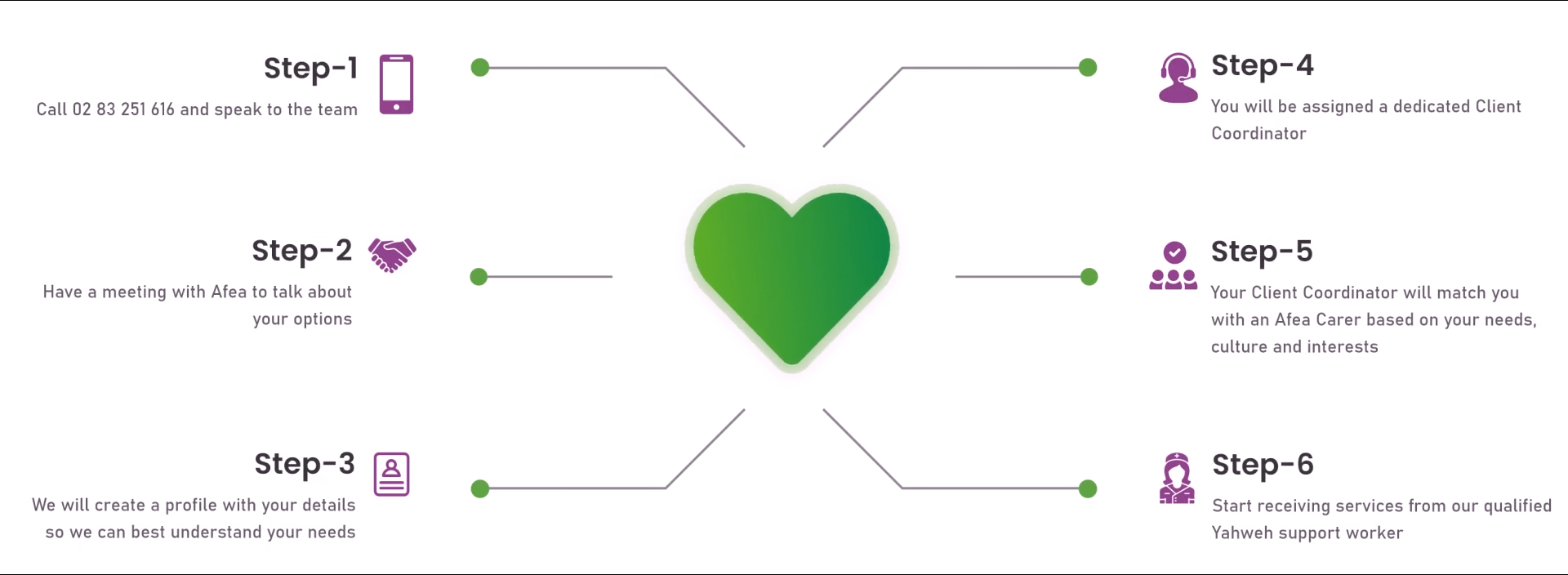SWITCH TO YAHWEH CARE
Providing care and holistic approach to NDIS participants aiming to create opportunities for you to live your best life.
Contact UsNDIS Medication management monitors medicine use to ensure patients take it appropriately, safely, and successfully. This process is crucial for people who take numerous medications before or after hospital care. Usually, takers are those who are old, in long-term care, under post-op rehabilitation, or have chronic illnesses.
With NDIS Medication management, it is significantly important to address medication mistakes, harmful drug interactions, and overdoses. Thus, it is vital that drug medications contain beneficial effects that help patients and ensure their great health.

The Medication management of NDIS is tailored for the safety of the patients. However, it is important to understand that administering medication requires consideration.
Here are the following:
Medication review is necessary. It examines over-the-counter drugs, doctor-prescribed meds, complementary healthcare products, supplements, and vitamins. This clinical procedure helps identify and address any problems that might occur while the patient takes prescribed drugs.
These include drug interactions, wrong medication, and drug expirations. Pharmacists and medical professionals frequently evaluate these drugs to maximize patient health and avoid health issues.
It aims to determine whether any other medications interfere with other drugs and test their effectiveness as part of the treatment strategy.
Every patient deserves to know the types of medications they have to take. They need to know if it is safe or reliable for their health improvement.
Therefore, the encouragement of an effective communication is necessary so patients participate actively in their care. This includes outlining each medication’s intended use, the appropriate dosage, and the best time to take it.
Patients should also be told about possible adverse effects and what to do in the event of an allergic response.
Adherence monitoring ensures that patients take their medications as prescribed. This process allows patients and caregivers to know their responsibility in medication management.
Patients can benefit from assistive technologies such as smartphone applications. They can also use medication alarms, and pill organizers. These can send reminders for when to take medications, track doses, and monitor medication schedules.
Medical professionals may also conduct routine check-ins to determine whether patients have trouble following the prescriptions. This lessens the possibility of unexpected health problems, drug errors, and missing doses.
Before patients leave the hospital, their prescriptions are reviewed to ensure no conflicts or duplicates with those ordered for in-home care.
This process is called medication reconciliation. It requires comparing a patient’s existing prescriptions with various healthcare providers.
It aids in locating any potentially dangerous drug interactions, lapses, or duplicate prescriptions. This process is necessary to avoid health issues and enhance coordination among healthcare professionals.
It is important to note the possible adverse reactions during medication to prevent patient health complications. Caregivers or medical professionals must ensure NDIS participants feel confident in knowing the purpose of each drug. They have to know when and how to take it.
With that, healthcare professionals evaluate every prescription a patient is taking. They do this to identify any dangerous drug interactions or preexisting medical issues and know when they can modify treatment.
However, only a certified medical professional can change or modify prescriptions. The patients are not allowed to take or reduce drugs without medical approval.

Involving a group of medical specialists, such as physicians, pharmacists, nurses, and caregivers, is a must during the NDIS medication management process.
Every specialist contributes their area of knowledge to help patients track their health and determine whether medicine is required.
With collaborative NDIS support care, patients and caregivers can focus on one goal: utilizing medication for health advancement. This collaborative method promotes better overall drug management, increases patient safety, and improves treatment results.
Medication management is vital to keep the patient’s health safe during recovery period. Unfortunately, there are still quite a few issues that caregivers and patients need to look out for.
With that, both the NDIS worker and recovering patients must take note of the following
Caregivers or medical practitioners with a medication course must provide information that indicates the possible consequences of misused drugs. Some of the symptoms to look out for may include fever, infection symptoms, chest pain, shortness of breath, or heavy bleeding.
The symptoms may differ depending on the individual’s state (e.g., diabetes, cancer therapy, heart surgery). Therefore, National Disability Insurance Scheme NDIS medication plans should be customized to include certain health-related warning indicators.
Patients can respond more rapidly to major difficulties if given clear instructions on when to contact their healthcare provider or seek emergency care.
The NDIS disability support workers must have appropriate training and access to emergency hotlines in case medication issues arise.
In addition, it is necessary to teach family members and caregivers how to handle clinical situations if complications develop without notice.

Proper medication management lowers healthcare expenses, improves quality of life, and improves patient outcomes. For people with complicated treatment plans or chronic illnesses in particular, medication management is essential to guarantee the efficiency of the utilized drugs.
Patients with effective medication management are more equipped to confidently and supportively manage their recovery. It aids in preventing harmful drug interactions and prescription errors, all of which can result in major health issues.
Thus, optimizing medication use requires regular reviews, patient education, and support resources.
Healthcare systems and NDIS providers must prioritize patients health and competently manage medications safely and easily. With thorough education and coordinated follow-up treatment, NDIS providers can help boost patient health outcomes.
Yahweh Care’s medication management strategy emphasizes providing NDIS participants with individualized, complete care. They focus on administering medication safely, and successfully.
Yahweh Care helps avoid mistakes, increase adherence, and improve overall health outcomes by combining routine medication evaluations, patient education, and continuing support. Integrating medication management as a crucial element of patient-centered care is essential to improving patient satisfaction and health.
Their strategy empowers people to take charge of their health while getting the best care possible by fostering a strong collaboration between patients, caregivers, and healthcare providers. For a kind, all-inclusive, and efficient NDIS medication management solution that prioritizes your health, choose Yahweh Care.
Contact them with a message now!
Providing care and holistic approach to NDIS participants aiming to create opportunities for you to live your best life.
Contact Us



| Mon | Tue | Wed | Thu | Fri | Sat | Sun |
|---|---|---|---|---|---|---|
26 | 27 | 28 | 29 | 30 | 31 | 1 |
2 | 3 | 4 | 5 | 6 | 7 | 8 |
9 | 10 | 11 | 12 | 13 | 14 | 15 |
16 | 17 | 18 | 19 | 20 | 21 | 22 |
23 | 24 | 25 | 26 | 27 | 28 | 29 |
30 | 1 | 2 | 3 | 4 | 5 | 6 |
| Mon | Tue | Wed | Thu | Fri | Sat | Sun |
|---|---|---|---|---|---|---|
26 | 27 | 28 | 29 | 30 | 31 | 1 |
2 | 3 | 4 | 5 | 6 | 7 | 8 |
9 | 10 | 11 | 12 | 13 | 14 | 15 |
16 | 17 | 18 | 19 | 20 | 21 | 22 |
23 | 24 | 25 | 26 | 27 | 28 | 29 |
30 | 1 | 2 | 3 | 4 | 5 | 6 |
| Mon | Tue | Wed | Thu | Fri | Sat | Sun |
|---|---|---|---|---|---|---|
26 | 27 | 28 | 29 | 30 | 31 | 1 |
2 | 3 | 4 | 5 | 6 | 7 | 8 |
9 | 10 | 11 | 12 | 13 | 14 | 15 |
16 | 17 | 18 | 19 | 20 | 21 | 22 |
23 | 24 | 25 | 26 | 27 | 28 | 29 |
30 | 1 | 2 | 3 | 4 | 5 | 6 |